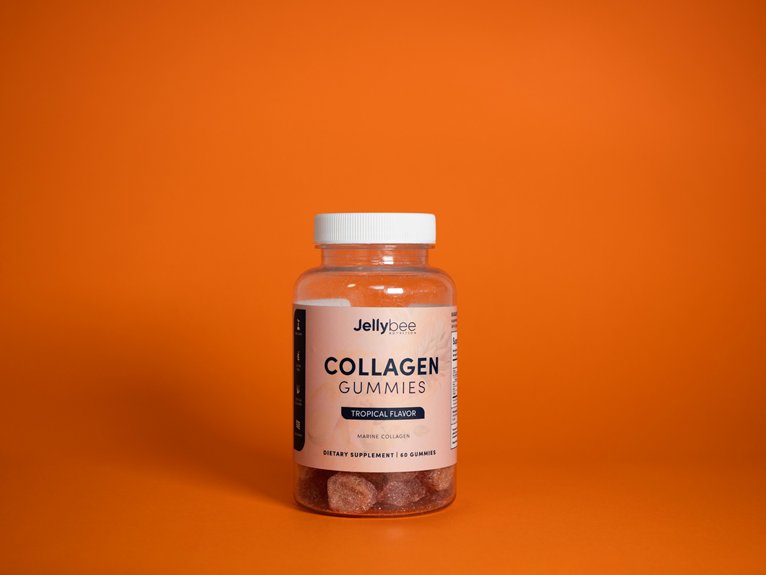
Like a well-structured building relies on its foundation, your body depends on collagen for strength and support. This essential protein plays a critical role in maintaining skin elasticity, joint function, and gut health. But how effective is collagen supplementation in these areas? Experts are uncovering the real benefits, and the findings might surprise you. Let’s explore the evidence behind collagen and its potential impact on your overall well-being.
Understanding Collagen: What It Is and Its Role in the Body
Collagen, often dubbed the body’s scaffolding, is a vital protein that plays a crucial role in maintaining the structure and integrity of various tissues.
It’s the most abundant protein in your body, found in skin, bones, muscles, tendons, and ligaments. Collagen provides strength and elasticity, enabling your tissues to withstand stretching and pressure.
As you age, collagen production naturally declines, which can lead to weaker joints and sagging skin. Certain factors, like diet, hydration, and lifestyle choices, can influence collagen levels. Incorporating foods rich in vitamin C, amino acids, and antioxidants can support collagen synthesis. Additionally, collagen loading can help mitigate age-related collagen depletion and enhance its benefits for overall health. Understanding its role helps you appreciate why maintaining collagen levels is essential for overall health and well-being.
The Impact of Collagen on Skin Health and Aging
As you age, your skin undergoes various changes, and one of the critical factors influencing its health is collagen. This protein provides structure and elasticity, helping to maintain skin firmness.
Research shows that collagen production decreases significantly after the age of 25, leading to wrinkles, dryness, and loss of volume. Supplementing with collagen peptides has been found to improve skin hydration, elasticity, and overall appearance.
Studies suggest that regular collagen intake can stimulate your skin’s natural collagen synthesis and enhance its repair processes. Additionally, some evidence indicates that collagen may reduce the visibility of fine lines and promote a youthful glow.
Collagen for Joint Health: What the Research Shows
Joint health is a crucial aspect of overall well-being, especially as you age or engage in physical activities. Research shows that collagen supplementation can significantly benefit joint health.
Studies indicate that taking collagen may help reduce joint pain and improve symptoms of osteoarthritis. One study found that participants who consumed collagen experienced a notable decrease in joint pain during physical activity and reported enhanced mobility.
Collagen may also support cartilage regeneration, providing crucial structural support to joints. Additionally, its anti-inflammatory properties can further aid in maintaining joint function.
If you’re considering collagen for joint health, consult with a healthcare professional to identify the best approach tailored to your needs and lifestyle.
The Connection Between Collagen and Gut Health
When considering ways to improve gut health, you might be surprised to learn that collagen plays a significant role in maintaining a healthy digestive system.
Research indicates that collagen helps strengthen the gut lining, which can reduce the risk of leaky gut syndrome. This condition allows toxins to enter the bloodstream, potentially leading to inflammation and digestive issues.
Collagen also provides amino acids, such as glycine and proline, that support the repair and regeneration of gut tissues. Additionally, it may promote a balanced gut microbiome, essential for overall digestive health.
How to Incorporate Collagen Into Your Diet: Tips and Sources
Incorporating collagen into your diet can be simple and enjoyable, especially with the variety of sources available. You can start by adding collagen peptides to your morning smoothie or coffee. They dissolve easily and won’t alter the flavor.
Bone broth is another excellent source; consider using it as a base for soups or stews. If you’re a fan of snacks, try collagen-infused protein bars or gummies. Additionally, certain foods, like chicken skin and fish, naturally contain collagen.
For a more concentrated option, look for collagen supplements in powder or capsule form. Always consult with a healthcare professional before starting any new supplement regimen, especially if you have underlying health conditions. This way, you can ensure you’re making informed choices for your health.






